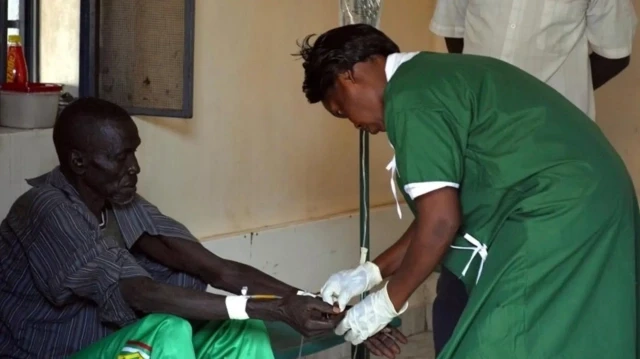
Over 8,500 cases and nearly 400 deaths reported in Darfur, mostly women and children
A fast-spreading cholera outbreak is worsening in Sudan’s war-torn Darfur region, where the collapse of the health sector and deteriorating humanitarian conditions are leaving civilians without treatment or prevention, local monitors and aid groups warned Friday.
At least 8,569 infections and 361 deaths have been recorded in Darfur as of Wednesday, according to the General Coordination of Refugees and Displaced People. Most of the victims are women and children.
The outbreak has hit hardest in overcrowded displacement camps and besieged towns.
Tawila in North Darfur reported the highest caseload, with 4,850 cases, while Jebel Marra’s Golo area recorded 1,290 infections. In Kalma camp, 435 cases and 64 deaths were confirmed, alongside dozens more in Otash and other camps.
“Darfur is living through its worst crisis. Life has become unbearable due to epidemics, hunger, and a war that kills in silence,” Adam Rajal, a spokesman for the coordination body, told Anadolu.
He said the region faces a “severe shortage of medicines” and that many patients must walk two to eight hours to reach the few isolation centers still functioning.
The conflict between the Sudanese army and the paramilitary Rapid Support Forces, now in its third year, has devastated Darfur’s health services. Hospitals lack oral and intravenous rehydration solutions, the first line of treatment for cholera, despite repeated international appeals to allow medical aid into the region.
Nationwide, the Health Ministry has reported 102,831 infections and 2,561 deaths since the epidemic began in August 2024.
The medical charity group Doctors Without Borders said cholera killed 40 people in Darfur in just one week earlier this month, calling the outbreak “more than an emergency.”
“The epidemic has now spread beyond displacement camps into multiple areas across Darfur and beyond,” said the group's mission chief Tuna Turkmen. “The international response must provide clean water, sanitation, and vaccinations to prevent further deaths.”
The World Health Organization confirmed cholera cases in all 18 Sudanese states, while the UN has warned of simultaneous surges in measles and malaria, especially in North Darfur’s Tawila and the besieged city of El-Fasher.
Local journalist Nemat al-Haj described El-Fasher as “the worst-hit city,” with only one hospital operating at 20% capacity and medicine for chronic illnesses running out.
“The epidemic is spreading inside El-Fasher and in surrounding areas like Tawila, Jebel Marra, and Shangil Tobaya,” she said.
The cholera crisis comes as the war has killed more than 20,000 people and displaced 14 million, according to the UN and local authorities. Research from US universities, however, estimates the death toll at around 130,000.







